Industrial Borescope
100000.00 - 200000.00 INR/Unit
Product Details:
- Product Type Industrial Borescope
- Usage Pipe inspection, Drain and sewer inspection, Duct Inspection.
- Color Black
- Function Video recording, Picture capture, zoom, view content.
- Accuracy 100 %
- Click to View more
X
Industrial Borescope Price And Quantity
- 1 Unit
- 100000.00 - 200000.00 INR/Unit
Industrial Borescope Product Specifications
- Pipe inspection, Drain and sewer inspection, Duct Inspection.
- Industrial Borescope
- Black
- Video recording, Picture capture, zoom, view content.
- 100 %
Industrial Borescope Trade Information
- 100 Unit Per Month
- 3 Week
Product Description
Industrial Borescope is used for inspection and maintenance of automobile engine. This optical analyzing instrument is equipped with 316 grade stainless steel made mesh based articulating part with 180 degree angular direction of probe. This specific part of camera is wear proof to resist various damaging factors of environment. This high definition camera has multi level brightness adjustment feature with mega pixel picture capturing function. Adjustable focal length range, wide viewing angle, large IPS display screen and application of CMOS image sensor are the key aspects of offered Industrial Borescope.
Industrial Borescope Applications:
1. Automotive Industry: Industrial borescopes are used for inspecting engines, cylinders, pistons, valves, fuel injectors, and other components to identify defects, wear, or damage without disassembly.
2. Aerospace Industry: Borescopes are employed to inspect aircraft engines, turbines, fuel lines, hydraulic systems, and airframes for cracks, corrosion, foreign object damage (FOD), and other abnormalities, ensuring safety and reliability.
3. Manufacturing: In manufacturing, borescopes are utilized for quality control inspections of machined parts, welds, castings, and assemblies, detecting surface defects, internal flaws, or improper weld penetration.
4. Power Generation: Borescopes play a crucial role in inspecting steam turbines, gas turbines, boilers, and other power generation equipment for erosion, deposits, cracks, and other issues that may affect performance or efficiency.
5. Oil and Gas Industry: Industrial borescopes are used in oil refineries, pipelines, storage tanks, and offshore platforms to inspect welds, pipes, valves, and pressure vessels for corrosion, leaks, and structural integrity.
6. Petrochemical Industry: Borescopes are employed for inspecting process equipment, heat exchangers, reactors, and vessels in petrochemical plants to ensure operational safety, compliance, and reliability.
7. Marine Industry: In ship maintenance and repair, borescopes are used for inspecting engine components, propeller shafts, hulls, ballast tanks, and piping systems to detect corrosion, erosion, and structural defects.
8. Construction: Industrial borescopes are utilized for inspecting building structures, HVAC systems, plumbing, and electrical conduits to assess the condition, integrity, and compliance with regulations.
9. Railway Industry: Borescopes are used to inspect rail tracks, wheels, axles, and critical components of locomotives and rolling stock to detect cracks, defects, and wear that could compromise safety.
10. Medical Devices: In the medical field, borescopes are used for non-destructive testing (NDT) and quality control inspections of medical devices, implants, and instruments, ensuring precision and compliance with regulatory standards.
11. Environmental Monitoring: Borescopes are employed for environmental inspections, such as assessing the condition of wells, boreholes, and underground infrastructure, as well as inspecting wildlife habitats and ecological structures.
12. Forensics and Law Enforcement: Industrial borescopes are used by forensic investigators and law enforcement agencies for crime scene investigations, search and rescue operations, and surveillance in confined spaces.
Industrial Borescope FAQ:
1. What is an industrial borescope?
Ans: An industrial borescope is a flexible or rigid optical device equipped with a camera that is used to inspect hard-to-reach areas within machinery, equipment, pipes, and other industrial structures.
2. How does an industrial borescope work?
Ans: Industrial borescopes typically consist of a long, flexible or rigid tube with a camera and light source attached to one end. The camera captures images or videos of the internal conditions of the object being inspected, which are then transmitted to a display unit for analysis.
3. What are the main components of an industrial borescope?
Ans: The main components include the insertion tube (flexible or rigid), the camera head, the light source, the control unit (display screen and interface), and often additional accessories such as probes, articulation controls, and recording capabilities.
4. What are the different types of industrial borescopes?
Ans: There are mainly three types of industrial borescopes: rigid borescopes, flexible borescopes, and semi-rigid borescopes. Rigid borescopes are straight and are suitable for inspecting straight pathways. Flexible borescopes have a flexible insertion tube, allowing them to navigate through curved or contoured paths. Semi-rigid borescopes offer a combination of flexibility and rigidity.
5. What are the applications of industrial borescopes?
Ans: Industrial borescopes are used in various industries such as automotive, aerospace, manufacturing, power generation, construction, and plumbing for inspecting engines, turbines, pipes, welds, aircraft components, HVAC systems, and more.
6. What are the key features to consider when choosing an industrial borescope?
Ans: Key features to consider include the diameter and length of the insertion tube, the resolution and quality of the camera, the type and brightness of the light source, the flexibility or rigidity of the borescope, articulation capabilities, recording options, durability, and compatibility with accessories.
7. What are the advantages of using an industrial borescope?
Ans: Industrial borescopes allow for non-destructive inspection of hard-to-reach areas without the need for disassembly, reducing downtime and costs. They enable early detection of defects, faults, or abnormalities, thus preventing potential breakdowns or accidents. They also provide documentation of inspection findings for quality control and compliance purposes.
8. Are industrial borescopes waterproof?
Ans: Some industrial borescopes are waterproof or water-resistant, depending on their design and intended use. Its essential to check the specifications of the borescope to determine its suitability for underwater or wet environments.
9. Can industrial borescopes be used in hazardous environments?
Ans: There are industrial borescopes specifically designed for use in hazardous environments, such as those with explosive gases or flammable materials. These borescopes are intrinsically safe and comply with safety standards and regulations for use in such environments.
10. How do I maintain and care for my industrial borescope?
Ans: Proper maintenance includes cleaning the borescope after each use, especially the insertion tube and camera lens, to remove any debris or contaminants. Avoid bending or kinking the insertion tube beyond its specified limits to prevent damage. Store the borescope in a dry and safe environment when not in use, and follow the manufacturers guidelines for calibration and servicing.
Tell us about your requirement

Price:
Quantity
Select Unit
- 50
- 100
- 200
- 250
- 500
- 1000+
Additional detail
Mobile number
Email
 English
English Spanish
Spanish French
French German
German Italian
Italian Chinese (Simplified)
Chinese (Simplified) Japanese
Japanese Korean
Korean Arabic
Arabic Portuguese
Portuguese
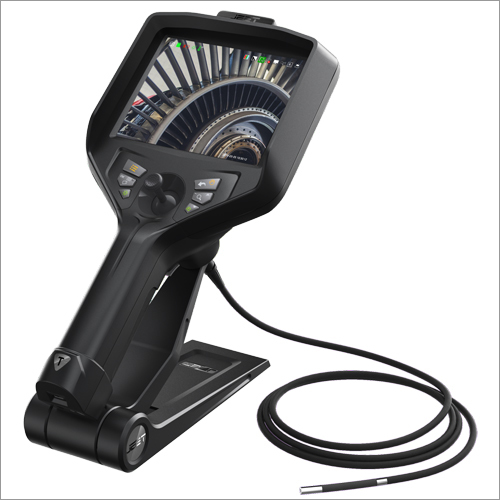

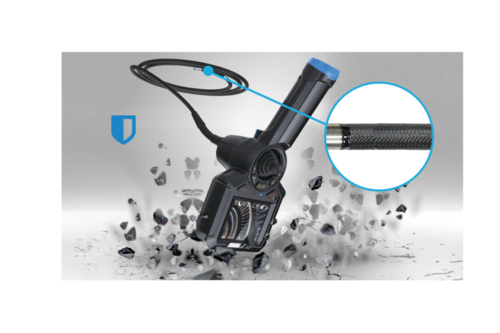
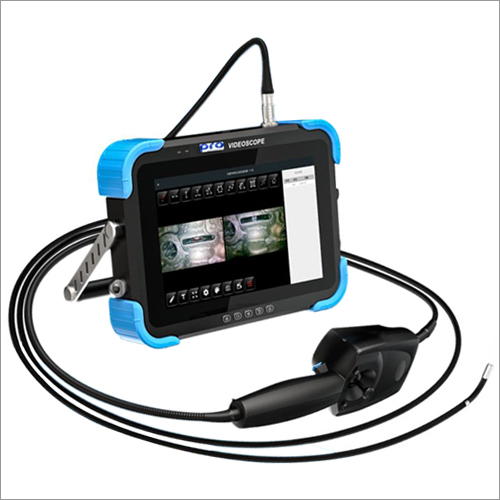
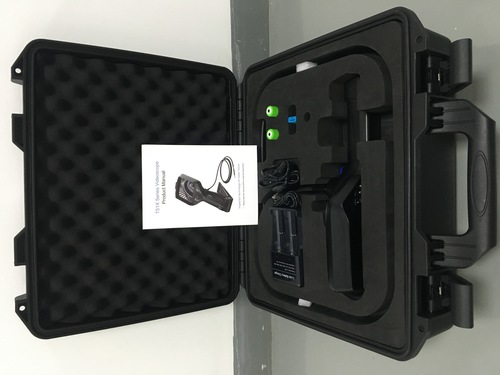
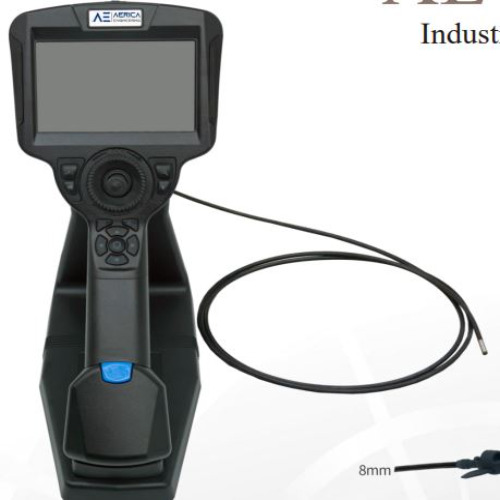
 Call Me Free
Call Me Free
